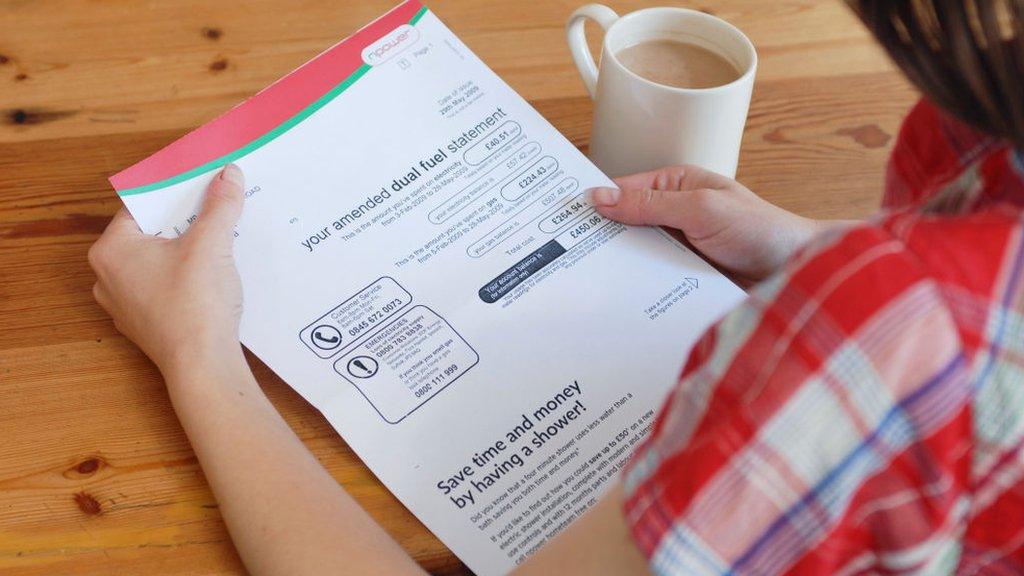Energy suppliers told to review soaring direct debits
- Published
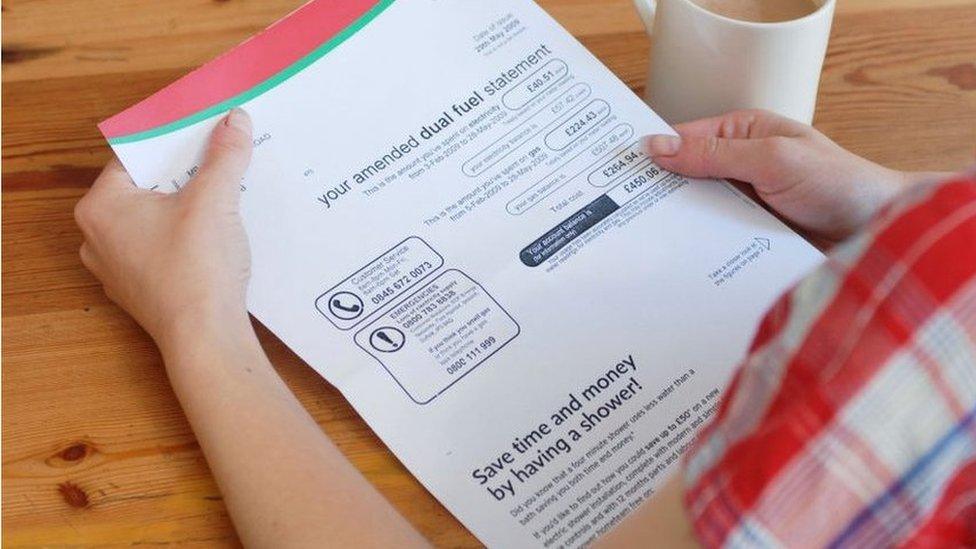
UK energy suppliers have been told to review the way they charge customers by direct debit amid complaints about soaring charges and credit balances.
The regulator Ofgem also urged six suppliers to take "immediate" action to tackle issues with their charging processes.
Some 500,000 households saw direct debit payments double this year, Ofgem said, despite prices rising by 54%.
It wants suppliers to check whether such a large increase was justified.
The six suppliers singled out included Ecotricity, Good Energy, Green Energy UK, Utilita Energy, TruEnergy and UK Energy Incubator Hub (which has now ceased trading).
Ofgem found they had "moderate to severe" weaknesses, ranging from inadequate charging processes to lacking a structured approach to setting direct debits.
The watchdog has now ordered all energy suppliers to review the accounts of customers whose direct debit was doubled or more between February and the end of April.
Where appropriate, Ofgem said it expected suppliers to adjust any miscalculations, including making repayments if needed, and consider whether a goodwill payment is warranted.
Millions of domestic gas and electricity customers cover their bills with an identical direct debit payment every month. This is set by their supplier based on the price, and a customer's previous and predicted energy use.
If someone has paid for more energy than they have actually used, a credit balance builds up.
"Suppliers must do all they can, especially during the current gas crisis, to support customers and to recognise the significant worry and concern increased direct debits can cause," said Jonathan Brearley, Ofgem's chief executive.
"We know there is some excellent service out there, but we want to make sure that it's consistent and standard across the board. It's clear from today's findings on direct debits that there are areas of the market where customers are simply not getting the service they need and rightly expect in these very difficult times."
British Gas, EDF, Scottish Power and SO Energy were given a clean bill of health. Bulb, E.ON, Octopus Energy, Outfox the Market, Ovo, Shell and Utility Warehouse were found to have some minor issues.
Direct debit demands
Consumer groups and the public complained to the regulator about "bad practices" by some suppliers - including questions over increases in direct debit demands and credit balances being too high.
The regulator has previously accused some firms of using customers' accumulated credit like an "interest-free company credit card".
On 1 April, yearly bills typically increased by £693 for about 18 million households on standard tariffs in England, Wales and Scotland, a rise of 54%. And some 4.5 million prepayment customers saw an average increase of £708 - from £1,309 to £2,017.
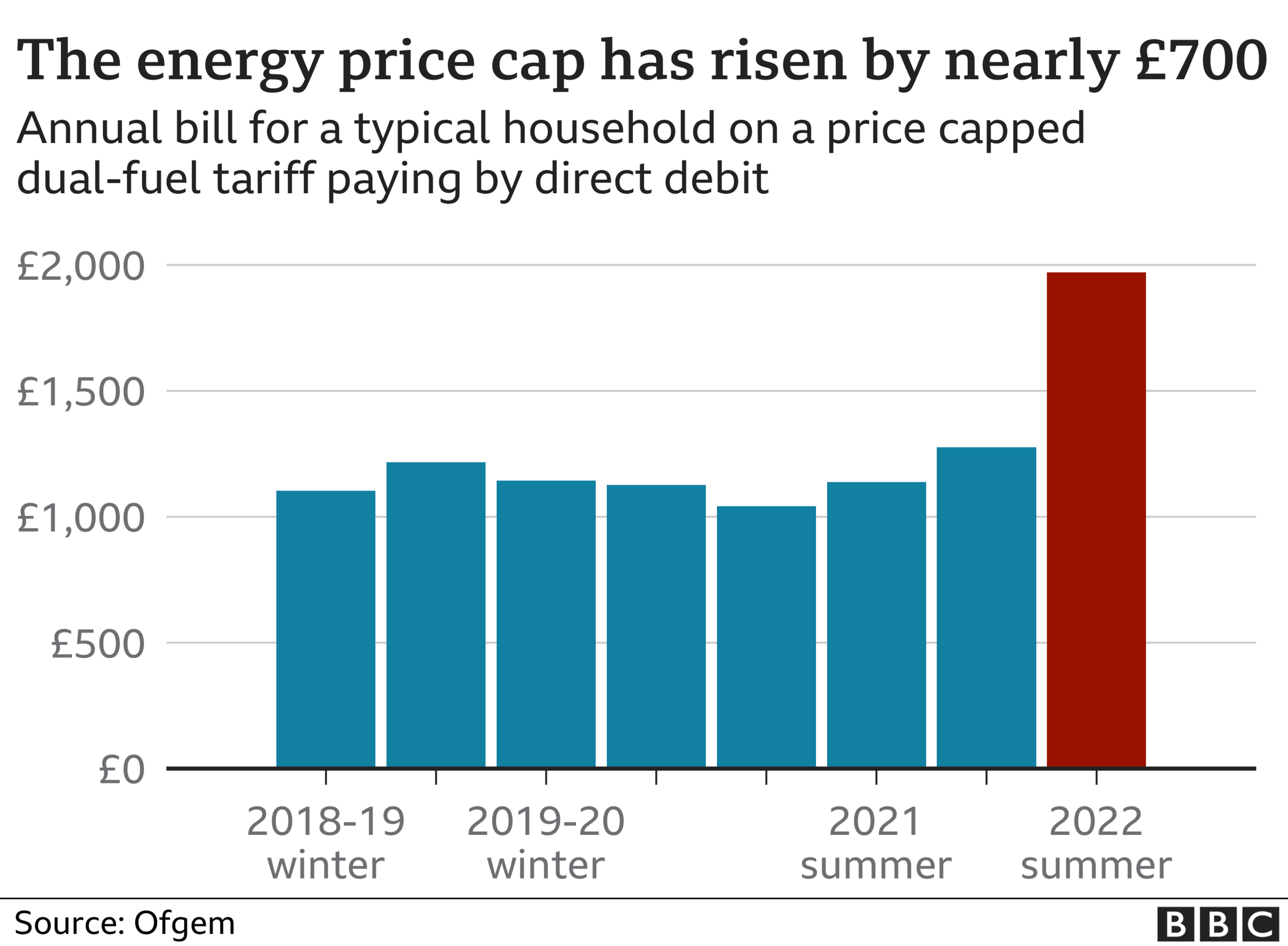
Last month Ofgem announced proposals which included tightening the rules on the level of direct debits that suppliers can charge to "ensure credit balances do not become excessive".
Ofgem also wants to protect credit balances when suppliers fail so the costs are not picked up by all bill payers.
Companies hit back
Some companies criticised by Ofgem have hit back.
Doug Stewart, Green Energy UK's chief executive, said his company was making improvements in the areas highlighted by the regulator.
"I do feel that given the challenging state of the market, Ofgem needs to resist knocking suppliers, like ourselves, who have survived the market crash and are doing our very best to help customers," he said.
A spokesman for Utilita said: "We have been left shocked and disappointed by Ofgem's decision to name and shame suppliers at this time, given we're still working on their follow-up request for additional information and evidence."
TruEnergy said it was "working with the regulator to demonstrate full compliance", while Good Energy said it was taking "rapid action" to address Ofgem's concerns.
"Ofgem raised just one concern relating to internal documentation. Our direct debit processes are proven to be fair and consistent with no detriment to customers. Ofgem is only serving to create extra anxiety for our customers here, at the worst possible time," a Good Energy spokesman said.
Dale Vince, founder of Ecotricity, said Ofgem ignored the fact it was installing a new billing system.
Dhara Vyas from Energy UK, which represents suppliers, said: "It is good that the regulator has found that the majority of suppliers have only minor issues with their processes and, where action is required to make further improvements, providers will work with the regulator to ensure these are in place quickly."
Rising bills
Households in England, Wales and Scotland have their bills governed by the energy price cap. That limits the amount suppliers can charge per unit of energy, and for the standing charge, and is set every six months. From this winter, it is expected that this will change to a three-month period.
Earlier this week, Mr Brearley said that prices were likely to rise by more than expected this winter.
One industry analyst has predicted a rise of more than £1,200 a year in October. Cornwall Insight said that the typical domestic customer was likely to pay £3,244 a year from October, then £3,363 a year from January.
The typical bill at present is about £2,000 a year, which follows a £700 a year rise in April.
Starting on Thursday, direct payments will be made to low-income households to help with the cost of living and covering energy bills.

Has your direct debit been set too high? You can get in touch by emailing: haveyoursay@bbc.co.uk, external.
Please include a contact number if you are willing to speak to a BBC journalist. You can also get in touch in the following ways:
WhatsApp: +44 7756 165803, external
Tweet: @BBC_HaveYourSay, external
Or fill out the form below
Please read our terms & conditions and privacy policy
If you are reading this page and can't see the form you will need to visit the mobile version of the BBC website to submit your question or comment or you can email us at HaveYourSay@bbc.co.uk, external. Please include your name, age and location with any submission.

Related topics
- Published8 July 2022
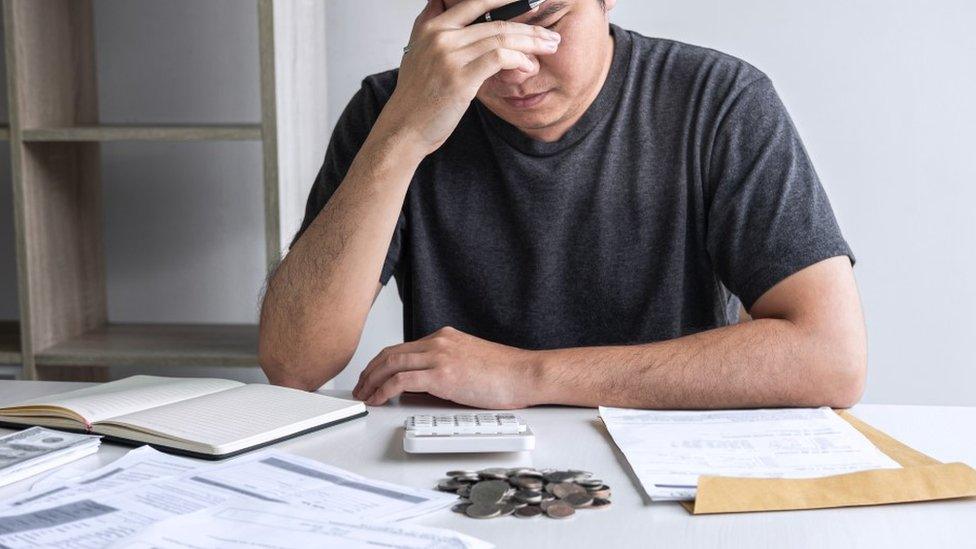
- Published11 July 2022
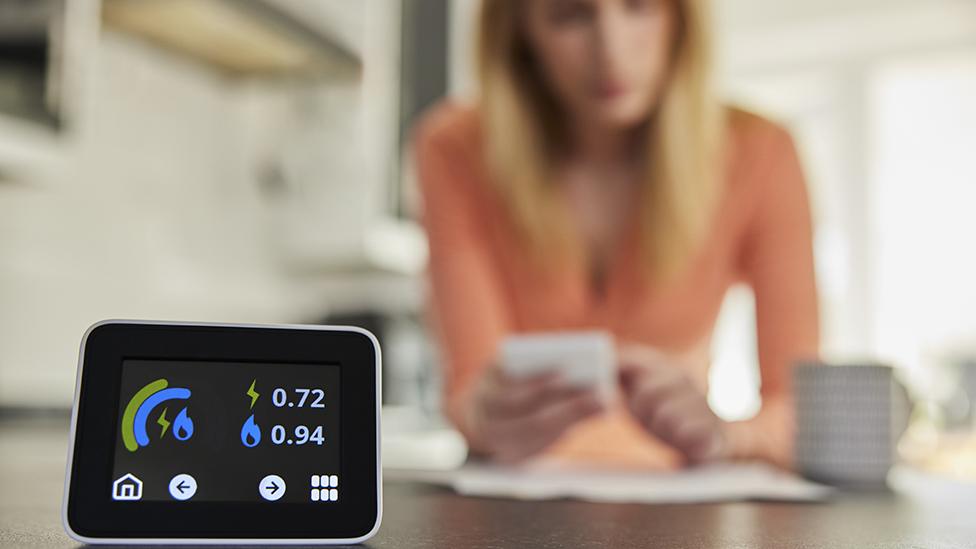
- Published3 May 2022
